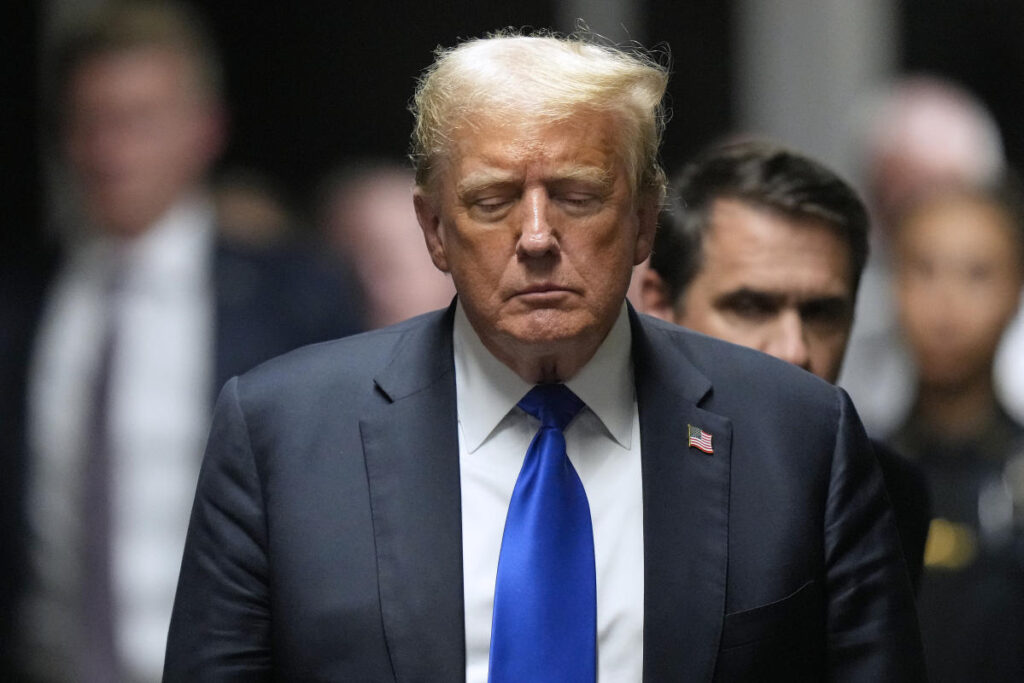When Donald Trump first ran for president in 2016, he pitched himself as a slick businessman who would run the country with the same confidence he displayed at the Trump Organization, the prestigious company that had made him a billionaire.
Eight years later, as he seeks his third presidential election, Trump is a convicted felon trapped by his own shoddy business practices. A series of media exposés, civil and criminal trials, and other investigations have revealed that Trump is a con man who repeatedly pushed the boundaries of the law during his business career and is now paying the price.
The latest and biggest shock came when a New York jury convicted Trump on May 30 on 34 charges related to falsifying business records as part of the Stormy Daniels scandal dating back to 2006.
Trump and Daniels had sex at a celebrity golf tournament in California while he was married to his now-wife Melania. A decade later, when Trump ran for president in 2016, Daniels threatened to go public with the affair. So Trump and his aides paid her $130,000 in hush money, and she agreed. The affair finally became public in 2018 after persistent reporting by The Wall Street Journal.
Trump's relationship with Daniels was not illegal, nor were the “hush money” payments made to her to keep her quiet. That is not what the New York District Attorney charged Trump with.
The district attorney charged Trump with falsifying business records because he disguised the payments as legitimate expenditures on the company's books. Trump's then-lawyer Michael Cohen paid Daniels $130,000 from his own funds in 2016, and Trump repaid Cohen for a total of $420,000. Cohen received the payments through a series of checks signed by Trump in 2017. These checks bore 34 different accounting entries, resulting in 34 counts. A jury found Trump guilty of felony assault on all counts.
Most Americans haven't been following the New York City trial closely, and some may wonder why there's so much fuss about the Daniels case, when there's nothing new about it. But what is new is the growing evidence of Trump's fraud and the damage it is doing to his reputation as a businessman.
Last year, the New York attorney general won a civil lawsuit alleging that Trump overvalued many of the properties in his portfolio, some by as much as 400 percent. The overvalued assets included Trump's Trump Tower home, a Wall Street office building, a Bedford, New York, mansion, three golf clubs, the Mar-a-Lago Club, a partnership agreement with developer Vornado, and other properties. The false valuations helped Trump get better terms on bank loans and insurance, and also allowed him to claim a higher net worth in the billionaires survey, which he takes seriously.
In determining the fine Trump must pay, Judge Arthur Engoron wrote, “This is not the first time that the Trump Organization or its affiliates have been found to have engaged in corporate fraud. This Court has determined that unless the Court grants substantial injunctive relief, Defendants are likely to continue their fraudulent conduct.” Judge Engoron imposed a massive fine of $464 million and appointed an independent receiver to oversee Trump's companies.
That's not all: In 2022, former CFO of the Trump Organization, Allen Weisselberg, pleaded guilty to 15 criminal counts of tax evasion related to his work at the company, which was convicted of 17 counts of tax evasion in the same case.
In 2018, the New York Attorney General sued the Donald J. Trump Foundation for “continued violations of the law,” resulting in a settlement the following year that resulted in the foundation being dissolved. In 2013, the New York Attorney General sued an organization known as “Trump University” for fraud, resulting in the organization being shut down and $25 million being paid to class-action plaintiffs.
Trump, of course, maintains his innocence and is appealing the civil judgment for a $464 million penalty, and is likely to appeal the conviction in the New York City case as well.
At the same time, Trump has sought to use his legal troubles to his advantage, portraying himself as a victim of political persecution and even selling copies of a mugshot taken at the start of his trial. Donations have poured into his campaign every time the courts overturned a ruling, suggesting some Americans are sympathetic to his plight.
At the same time, Trump's trial has provided an unvarnished look into the inner workings of his business, making him a vile con man who can finally be called a con man without the adjective “alleged.” Trump's apparent success with fraud undermines all the business genius he has touted in his books, interviews and splashy campaign speeches.
No one knows how Trump's conviction, the first of a former president or major presidential candidate, will affect this year's election. Normally, Trump would be disqualified, but he may still have a good chance of beating incumbent President Joe Biden. Voters may decide they're OK with being led by a con man, a convicted felon and a failed businessman.
Rick Newman is Yahoo FinanceFollow us on Twitter Follow.
Click here for business and monetary policy political news that will affect stock prices tomorrow.
Read the latest financial and business news from Yahoo Finance


